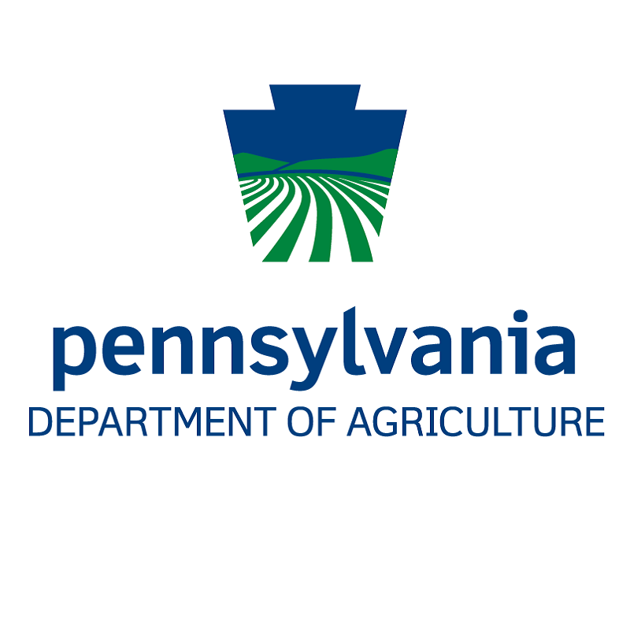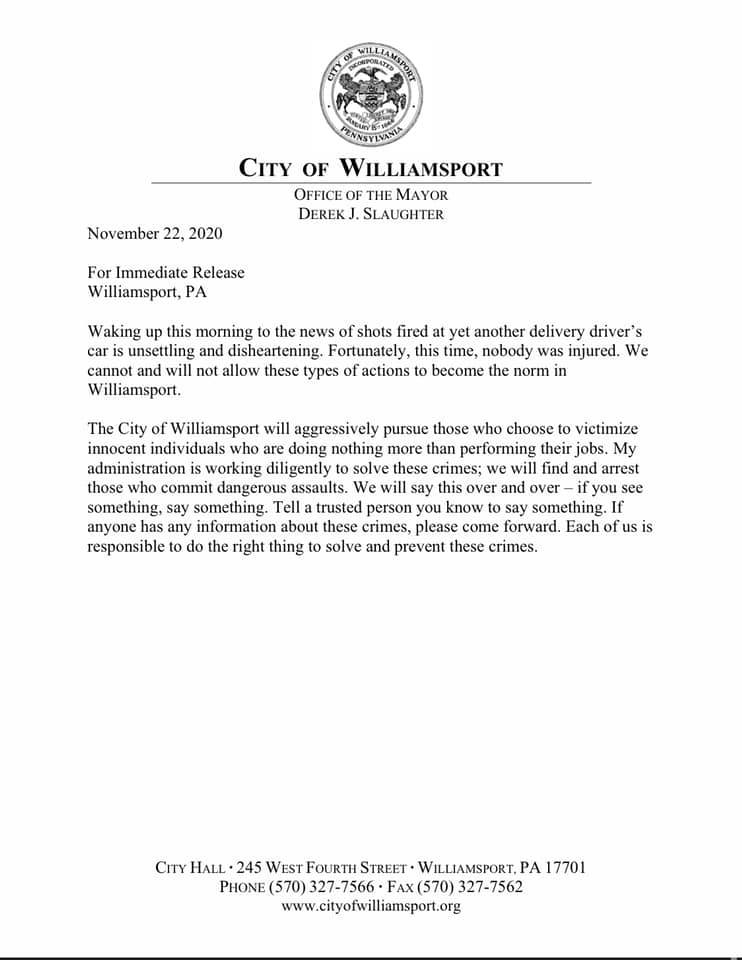One hundred thirty three (133) new cases added Sunday and Monday in Lycoming County now at 2,200 cases, no new deaths, 38 total deaths, with 19,199 negatives according to DOH report.
Department of Health Provides Update on COVID-19:
4,405 Patients Hospitalized and 918 Patients in the Intensive Care Unit
Two-Day Total of 9,797 Additional Positive Cases of COVID-19
Harrisburg, PA – The Pennsylvania Department of Health today confirmed as of 12:00 a.m., November 30, that there were 4,268 new cases, in addition to 5,529 new cases reported Sunday, November 29 for a two-day total of 9,797 additional positive cases of COVID-19, bringing the statewide total to 361,464.
There are 4,405 individuals hospitalized with COVID-19. Of that number, 918 patients are in the intensive care unit with COVID-19. Most of the patients hospitalized are ages 65 or older, and most of the deaths have occurred in patients 65 or older. More data is available here.
The trend in the 14-day moving average of number of hospitalized patients per day has increased by nearly 3,000 since the end of September.
Statewide percent positivity for the week of November 20 – November 26 stood at 11.7%.
The most accurate daily data is available on the website, with archived data also available.
The number of tests administered within the last 7 days between November 23 and November 29 is 392,547 with 47,557 positive cases. There were 47,836 test results reported to the department through 10 p.m., November 28 and 33,486 test results reported to the department through 10 p.m., November 29.
As of 11:59 p.m., Saturday, November 28, there were 75 new deaths and as of 11:59 p.m., Sunday, November 29, there were 32 new deaths reported for a total of 10,383 deaths attributed to COVID-19. County-specific information and a statewide map are available on the COVID-19 Data Dashboard.
Mask-wearing is required in all businesses and whenever leaving home. Consistent mask-wearing is critical to preventing the spread of COVID-19.
There are 16,951 individuals who have a positive viral antigen test and are considered probable cases and 639 individuals who have a positive serology test and either COVID-19 symptoms or a high-risk exposure.
There are 2,828,049 individuals who have tested negative to date. Of those who have tested positive to date the age breakdown is as follows:
- Approximately 1% are ages 0-4;
- Nearly 3% are ages 5-12;
- Nearly 6% are ages 13-18;
- Approximately 12% are ages 19-24;
- Nearly 37% are ages 25-49;
- Nearly 22% are ages 50-64; and
- Nearly 20% are ages 65 or older.
The department has seen significant increases in the number of COVID-19 cases among younger age groups, particularly 19 to 24-year-olds. An alert was sent to healthcare providers about the changing COVID-19 case demographics. Increases among 19 to 24-year-olds from April to present in November are available below:
- NC – Approximately 7 percent of cases in April to nearly 16 percent of cases so far in November;
- SE – Nearly 5 percent of cases in April to nearly 11 percent of cases so far in November;
- NE – 6 percent of cases in April to approximately 13 percent of cases so far in November;
- SW – Approximately 5 percent of cases in April to 10 percent of cases so far in November;
- NW – Nearly 7 percent of cases in April to nearly 11 percent of cases so far in November; and
- SC – Approximately 7 percent of cases in April to approximately 8 percent of cases so far in November.
In nursing and personal care homes, there are 35,367 resident cases of COVID-19, and 6,661 cases among employees, for a total of 42,028 at 1,266 distinct facilities in 64 counties. Out of our total deaths, 6,477 have occurred in residents from nursing or personal care facilities. A county breakdown can be found here.
Approximately 14,499 of our total cases are among health care workers.
The Wolf Administration stresses the role Pennsylvanians play in helping to reduce the spread of COVID-19:
- Wash your hands with soap and water for at least 20 seconds or use hand sanitizer if soap and water are not available.
- Cover any coughs or sneezes with your elbow, not your hands.
- Clean surfaces frequently.
- Stay home to avoid spreading COVID-19, especially if you are unwell.
- If you must go out, you are required to wear a mask when in a business or where it is difficult to maintain proper social distancing.
- Download the COVID Alert PA app and make your phone part of the fight. The free app can be found in the Google Play Store and the Apple App Store by searching for “covid alert pa”.
All Pennsylvania residents are encouraged to sign up for AlertPA, a text notification system for health, weather, and other important alerts like COVID-19 updates from commonwealth agencies. Residents can sign up online at www.ready.pa.gov/BeInformed/Signup-For-Alerts.







